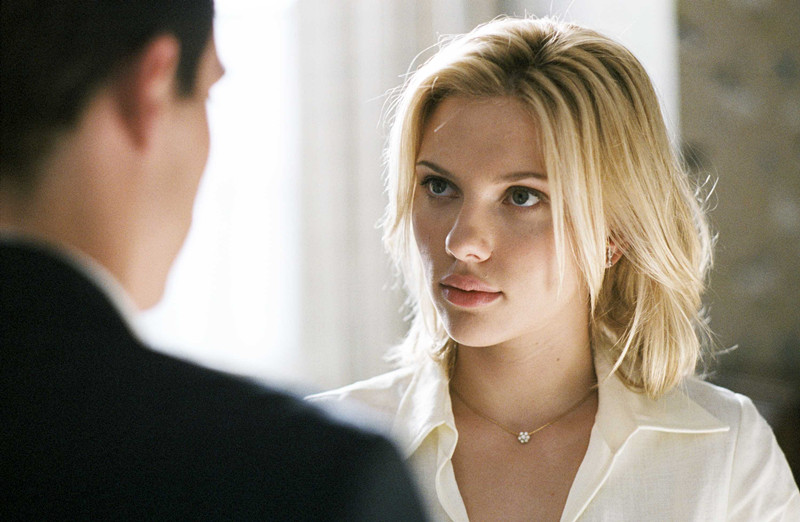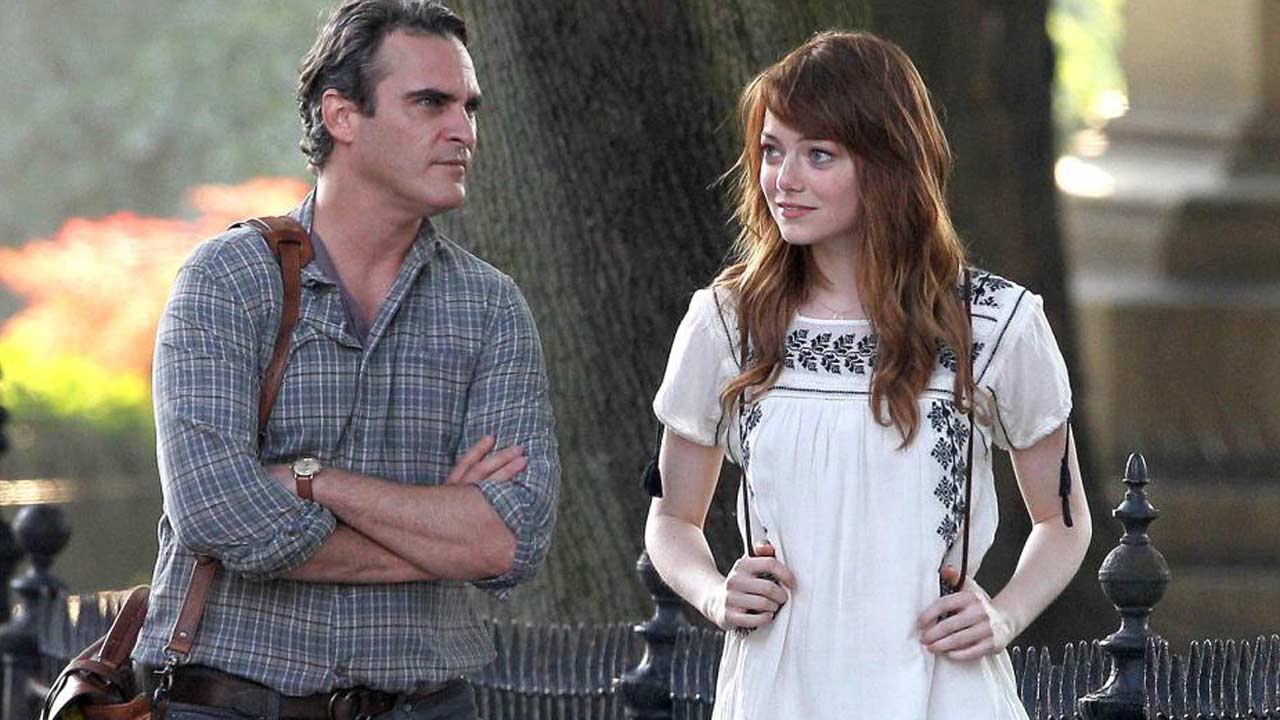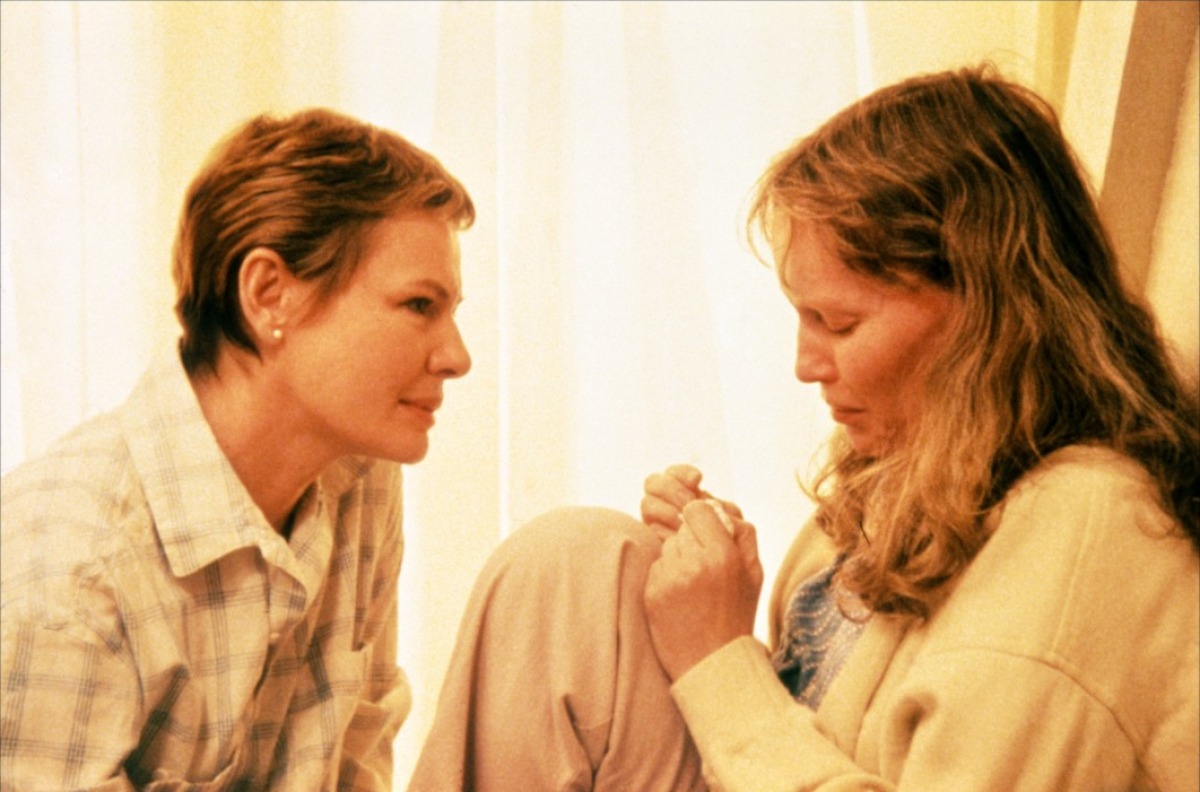
Woody Allen debuted as a director in 1966 with What’s Up, Tiger Lily?, a comical reworking and re-dubbing of a Japanese spy movie; as peculiar as the original original project was, it was also heavily modified by the studio without asking permission to Allen. This was the last time he directed a film on which he didn’t have complete creative control.
His first movies didn’t shy away from any type of gag (slapstick, wordplay, parody, and so on) and garnered him a vast fanbase; by the end of the 1970s, though, Woody Allen started to move away from the straight-forwardly comic style of his previous work. His masterpiece Annie Hall, a non-linear account of the ups and downs of a modern love story, was his first picture to deal with some dramatic storytelling; since then, Woody Allen has often varied his style in terms of genre and tone, and often employed dramatic elements, while always maintaining his peculiar dialogue and classical approach to cinematography.
His ventures in drama are influenced by his interest in philosophy and great novelists, and, as we’ll see, many of his dramas explicitly homage either great dramatic directors (like Bergman), or great writers (like Dostojevski).
This list is about Woody Allen’s films that are explicitly and exclusively dramatic, so his dramatic comedies have not been included (some of these dramatic comedies are actually clearly split between the two genres, like Melinda and Melinda, which tells the same story from the prospective of a comedy playwright and a dramatic one, and Crimes and Misdemeanors, which follows two parallel stories diametrically different in tone).
10. Alice (1990)

An unconventional film for Woody Allen standards, Alice stars Mia Farrow as the titular character, a vain housewife with little to say or do, whose life changes after she becomes attracted to a sax player. She is ridden by guilt, but the visit to an Asian herbalist, Dr. Yang, opens her life to new experiences and ultimately makes her reconsider her whole worldview.
Alice’s dreamy atmosphere sets it aside from Woody Allen classic comedies; Alice feels more like an homage to Federico Fellini’s Giulietta degli Spiriti, since both films follow the adventures of a betrayed wife in search for something new in her life (much like the director in Stardust Memories reflects the one in Fellini’s 8 1/2).
Alice is also one of the few films where Woody Allen explicitly inserts supernatural elements: Dr. Yang makes Alice invisible, gives her love potions, makes her encounter a ghost from her past, and so on. A peculiar entry in Allen’s filmography, Alice is what critic Paolo Mereghetti correctly called “an unresolved film”, meaning that the movie’s many directions (Fellinesque homage, social commentary, romantic fantasy) never seem to completely work as a whole.
9. Irrational Man (2015)

Irrational Man falls in the category of Woody Allen’s philosophy-influenced films and like in Crimes and Misdemeanors or Cassandra’s Dream the plot revolves around the temptation of committing a murder.
The protagonist is philosophy professor Abe Lucas (Joaquin Phoenix), a character with all of the existential problems and neurosis which Woody Allen’s leading men often present. The murder of a despicable man is the protagonist’s chance to give his life meaning again, or at least that is how he sees it; this storyline is intertwined with not one but two of Woody Allen’s much utilized love triangles.
It’s interesting to note how the trailers for the film were deceivingly joke-oriented; but even though Irrational Man has a flowing light rhythm and even if it is much less dark in tone than other recent works by Woody Allen (Cassandra’s Dream, Match Point), the film still is a drama, and the more the end approaches, the more tragic it gets. Its few comedic moments are brought by some dialogue scenes, like the one in which Emma Stone casually guesses every detail of Joaquin Phoenix’s murder while talking to him.
Irrational Man has many of the issues that recent films by Woody Allen suffer of, namely the too linear plot and forced plot points; still, it’s always interesting to see how his films stand the test of time, and maybe years from now this series of Woody Allen movies from the early 2010’s will be considered their own particular “era” in the long career of Allan Konigsberg.
8. September (1987)

After Interiors, it took Woody Allen nine years to decide to shoot another fully dramatic film. By that time, Allen’s muse was Mia Farrow, who stars in the film along a group of actors who actually were chosen after Woody Allen finished a version of the movie and then decided to rewrite it and recast it; to this day, September is mainly known as the movie Woody Allen shot twice (and he said he wouldn’t mind trying a third time).
The main literary reference is Chekhov’s Uncle Vanya, and the whole setting and rhythm of the film intentionally feels like a play. To quote Allen, “I’ve always wanted to make some chamber pieces with a small cast in one location; one way to do that is to work in play form deliberately”; that is the reason why the film is completely set inside a house.
Quite slow in its pace, September has many traits in common with Interiors, but it focuses more on dialogue-driven conflicts and lacks the directorial inventiveness of that film.
7. Cassandra’s Dream (2007)

Cassandra’s Dream is another dramatic story set abroad, and again Woody Allen puts a murder at the centre of the plot. The protagonists (Colin Farrell and Ewan McGregor) are two South-London brothers whose wealthy uncle offers financial help to in exchange for the execution of a man who could favor his arrest.
The moral problem that drives the film is as simple as it is haunting: is survival worth the sacrifice of one’s ethics? Allen uses the film to also go deeper in his exploration of social disparity: the protagonists’ uncle represents success in contrast to the middle class lifestyle of the rest of the family, and it is an excessive desire to climb the social ladder that drives the two brother to the crime.
Many critics have pointed out the film’s lack of creativity in its story, and said it never really reaches the gravitas implied in its themes; still, it’s notable for a series of reasons like its use of an original soundtrack, the first Woody Allen had employed since 1972 Everything You Always Wanted to Know About Sex* (*But Were Afraid to Ask); the music was composed by Philip Glass and functionally captured the film’s sense of impending destiny (after all, Cassandra is the Greek mythology figure who was able to predict future tragedies but could never be believed).
In addition, the director of photography is legendary Vilmos Zsigmond, a name that alone adds value to a film.
6. Vicky Cristina Barcelona (2008)

Vicky Cristina Barcelona is set abroad as many of Allen’s movies from the last decade. Though pretty light in its tone, the story develops into a pessimistic reflection on betrayal and on the psychological consequences of relationships. The first part of the film is built around the triangle composed by Rebecca Hall’s character (Vicky), Scarlett Johansson’s (Cristina) and Bardem’s (Juan Antonio).
Juan Antonio embodies many of the traits Woody Allen sees in European culture: he’s free-minded, sexually uninhibited, and artistically cultured, and it’s easy to see how he soon becomes a temptation to both Vicky and Cristina, and while the more uptight Vicky is skeptical, Cristina loses herself to the passionate relationship. In the second half of the movie Allen decides to show the other side of this kind of dynamic by introducing Juan Antonio’s ex-wife (Penelope Cruz) and her chaotic impulsivity.
Juan Antonio says “We are meant for each other and not meant for each other”, and in this thought lies the inexplicable difficulty of building a passionate but also functioning relationship: by living with Juan Antonio and his ex-wife, Cristina experiences some of the most satisfying moments of her life, but those moments come with as much pain as pleasure, as Vicky herself will also realize when she tries to go back to Juan Antonio.
Vicky Cristina Barcelona proposes an “European” alternative to the flawed relationships Woody Allen had described in his New York movies (Annie Hall first comes in mind); but the result does not change, and by the end of the film the characters don’t seem to have figured out anything new that could help them solve the problem of falling in love.